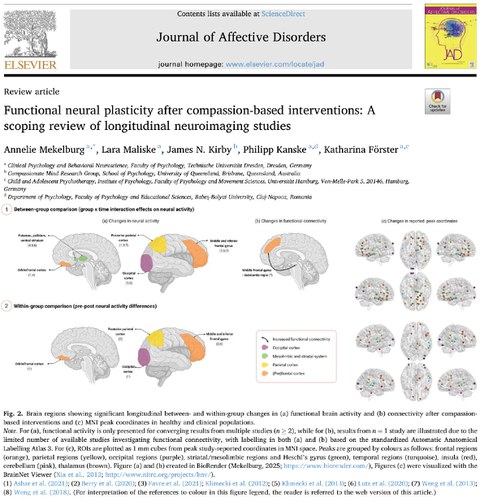Jul 09, 2025
The effects of compassion-based interventions on neural plasticity: a scoping review
Behavioral studies increasingly show that compassion-based interventions, in contrast to cognitive therapy, promote positive emotions as benevolence and caring and could therefore improve the treatment of psychopathologies associated with high levels of shame and self-criticism, like depression. However, the underlying mechanisms of action remain largely unexplored – the scoping review by Annelie Mekelburg, Prof. Philipp Kanske, Lara Maliske, and Katharina Förster from the Chair of Clinical Psychology and Psychotherapy in collaboration with Dr. James Kirby from the University of Queensland thus aims to synthesize the existing literature on longitudinal brain functional changes following compassion-based interventions and discusses current research gaps and practical implications. Our findings point to altered plasticity in brain areas associated with cognitive control, interoception, reward processing and positive affect. Such changes may serve as promising mechansims of action, thereby highlighting the potential of compassion in optimizing psychological interventions.
Further information can be found in the full publication in Journal of Affective Disorders
Mekelburg, A., Maliske, L., Kirby, J., Kanske, P. & Förster, K. (2025). Functional neural plasticity after compassion-based interventions: A scoping review of longitudinal neuroimaging studies. Journal Of Affective Disorders. https://doi.org/10.1016/j.jad.2025.05.006

